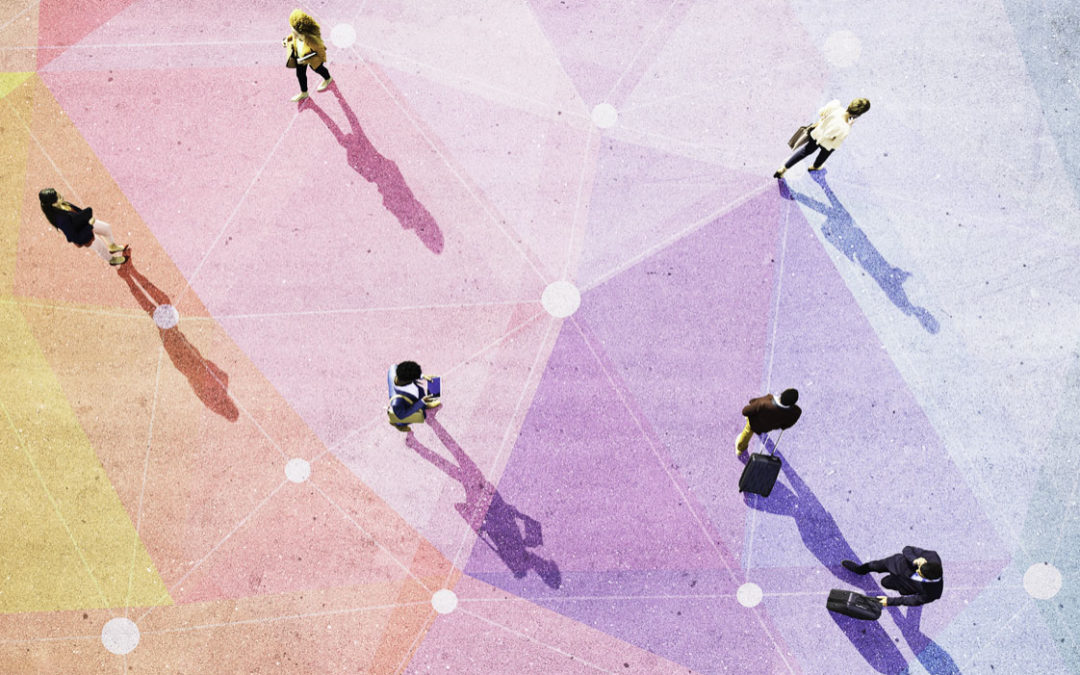Me and You and COVID-19
By David W. Tschanz
I spent thirty years as an infectious disease epidemiologist in South Carolina, Arizona and Saudi Arabia. I also write a lot lately on history and current affairs. Because of that I keep getting suggestions from my friends that I cover topics related to where we go from here, what life will look like in a year or two, or how history will judge our response. Let’s start with this: Think of this pandemic as if we are all standing in a burning building: let’s first put out the fire, then we can worry about the rest. So I’m not going to address those topics. I’m worried about the fire.
One of the interesting aspects of COVID-19 is the very wide and seemingly bimodal biological response. In the high-risk group (>65, + 1 or more chronic conditions) COVID-19 will quite possibly hit you like a truck and, if you survive, you can be permanently impacted (way worse than the flu). For everyone else, the risk is much lower. For young, healthy people, there is a good chance that if you get it, you will not even know it (less bad than the flu).
I want to emphasize that “not at-risk” does not mean “no risk.” As our understanding evolves, maybe we can figure out why some “not at-risk” people get sick and modify our definition of “at-risk.” It will never be perfect. There will always be some young, seemingly healthy individuals who will get very sick or die (most of those will have gotten a more-than-average exposure) and there will be 70-year-old men with multiple chronic conditions who have mild cases.
The public policy (and personal) implication is that we need to pay very close attention to the at-risk population. Full disclosure: I just had my 67th birthday and have 2 chronic conditions (heart disease and lung cancer), so I have more than a passing interest in this topic.
Here are the key tips for those of us in the at-risk group (and those of you who care about someone in the group):
Nothing is going to reverse a lifetime of non-healthy living, but the body’s response to this virus is all about the quality of your immune system. After consultation with your physician, get off the couch and walk more, eat healthy, stop smoking, drink in moderation, take vitamins, and lose some weight.
Socially isolate for the rest of 2020. No church, movies, restaurants, or parties. Don’t take public transportation (including Uber or taxis). Do online shopping or have someone bring you groceries. Wear a mask anytime you are around people.
If you still work, if possible, work from home. If you can’t work from home, now would be a good time to use up all vacation and sick days or retire. You really do not want to be in a crowded work environment if it can be avoided.
If you are going to get exposed, the less exposure the better. Wear a mask around other people. After being outside, wash your hands as soon as you come in the house. If you were around people, change your clothes (put them right in the washing machine) and take a quick shower.
If you live in an apartment, treat all common areas as infection zones. Wear gloves to get in and out of the building and then throw them away as soon as possible. Imagine that all surfaces are covered in wet paint that you do not want to get all over you.
If you share a household with other people, everything is just a lot harder. You can’t easily socially isolate from people in your house, but hand washing can become popular and routine. People can change clothes and shower when they come home from outside. For many medical workers, they no longer sleep in the same bed as their spouse. If anyone in the household starts showing flu-like symptoms, they need to get tested and not stay in the house if possible while they wait for the test results.
In New York, they are hiring people to do “Meals on Wheels” type services for the at-risk population (every now and again the government has a really smart idea). Locally in New Jersey, “Preferred Meals” is teaming with local restaurants to supply meals. Encourage your local governments and charities to do the same thing. This certainly sounds more useful than a bailout for Shake Shack (I know they returned the money). If you care about someone in the at-risk group, you can help them to stay isolated by shopping for them or doing errands.
You may think this is overkill and choose not to do it. That’s your choice. The good news is I won’t be attending your funeral to tell you “I told you so.”

Recent Comments